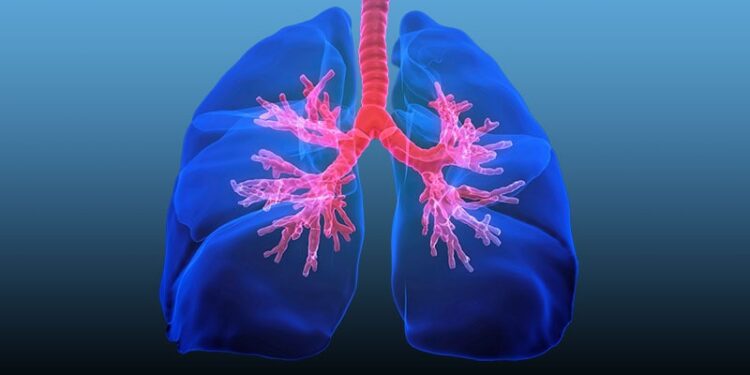Approximately 20% of patients who undergo bronchoscopic lung volume reduction (BLVR) lose the effects of the treatment within 2 years, according to data presented at the American Thoracic Society (ATS) 2025 International Conference in San Francisco.
Although BLVR has become common, data on the need and reasons for revision are limited, wrote Jiji Thomas, MBBS, Manager of Special Procedures at the Temple Lung Center, Philadelphia, and colleagues in their abstract.
The current study was designed to identify some factors behind the need for revision procedures, Thomas said in an interview.
In the study, Thomas and colleagues reviewed data from all patients that were treated with endobronchial valves in their center’s BLVR program since the therapy was approved by the US Food and Drug Administration in 2018.
The study population included 251 adults, 49 of whom (20%) required adjustments to maintain lobar volume reduction. The mean age of the patients was 67 years; approximately 43% were men. The time from the initial procedure to a loss of treatment effect was 7.3 months.
The most common area for the loss of treatment effect was the left upper lobe (16 patients), followed by the left lower lobe (14 patients), right lower lobe (10 patients), right upper lobe (8 patients), and right upper plus right middle lobe (5 patients). Most of the initial procedures involved Zephyr valves (78%); the remainder used Spiration valves.
Granulation of tissue was the most common cause of treatment loss (53%), followed by valve migration (34%), pneumothorax (7%), and excessive coughing (6%).
BLVR revisions were effective and well accepted by patients, the researchers wrote. Among the patients who needed revision, the residual volume/total lung capacity ratio was 63% at baseline and after initial valve placement and 58% after adjustment. Forced expiratory volume in 1 second was 0.78 at baseline, 0.84 after initial valve placement, and 0.89 after adjustment.
The researchers were not surprised by the improvement patients had following their revision procedure. However, “it was a little surprising that, in some cases, loss of benefit happened almost 18-24 months after the initial procedure; this emphasizes the need for long-term follow-up,” Thomas told Medscape Medical News.
The results confirmed that loss of treatment benefits of BLVR can be easily corrected with a revision procedure, said Thomas. “Patients need to be educated about revision, and treatment centers should give importance to long-term follow-ups on this group of patients,” he said.
No particular strategies can prevent the need for a BLVR revision, said Thomas. “The loss of treatment benefits in a certain percentage of patients who undergo BLVR cannot be avoided, but it can be easily corrected with a revision procedure,” he said.
However, “Future research may look into physiological and radiological factors that can predict which patients have higher chances of getting a revision procedure,” he added.
Support Despite Shortcomings
“Bronchoscopic lung volume reduction with valves is an option for some patients with severe emphysema,” said David Mannino, MD, a part-time professor at the University of Kentucky, Lexington, Kentucky, in an interview. “Some patients have a good initial response that does not persist over time, and this study looks at options for additional valves in those patients,” said Mannino, who was not involved in the study.
“I thought that the improvement in those patients who required additional valves was surprising; that is a good sign for those patients who have initial improvement that fails to persist,” Mannino told Medscape Medical News.
To reduce the need for revisions, BLVR is best done at highly experienced centers that are prepared to manage any complications, Mannino said. Looking ahead, more research to help identify which patients can expect the most improvement from BLVR would be helpful, he added.
The study received no outside funding. Thomas and Mannino had no financial conflicts to disclose.
Source link : https://www.medscape.com/viewarticle/bronchoscopic-lung-volume-reduction-requires-revision-20-2025a1000cvt?src=rss
Author :
Publish date : 2025-05-22 12:14:00
Copyright for syndicated content belongs to the linked Source.














